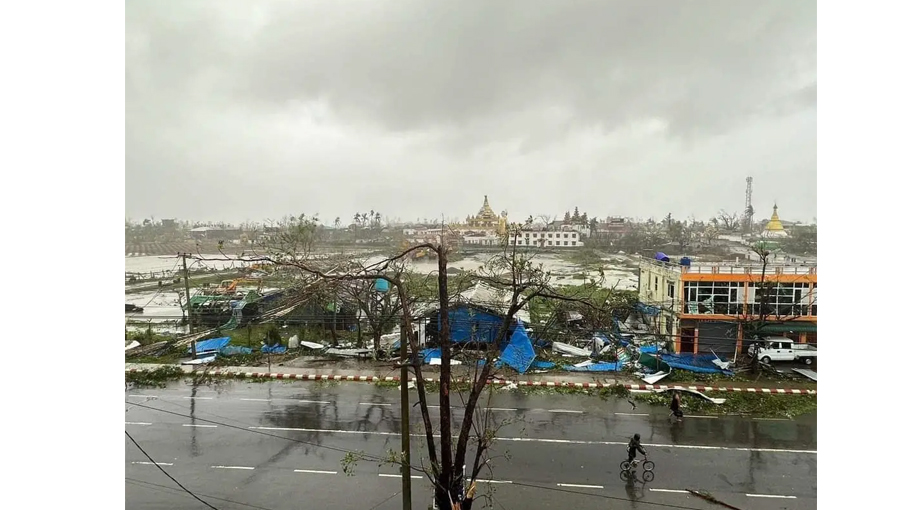Conflicts intensify climate change risks in Myanmar

In Myanmar, state oppression and armed conflict have threatened human security and disrupted livelihoods in the aftermath of the February 2021 military coup. How these changes undermine the country’s capacity to adapt to climate change has been overlooked.
Myanmar has suffered massive climate change losses, ranking as the world’s second most affected country between 2000–2019. Cyclone Nargis in May 2008 killed nearly 140,000 people, while Cyclone Mocha in May 2023, though less deadly, exposed the fragility of local communities due to declining state assistance.
The United Nations’ Myanmar Information Management Unit estimated that in 2021, 21 million people in Myanmar — 40 per cent of the population — were vulnerable to climate change, environmental degradation and disaster risk. This marked a 1 per cent increase from the 2016 estimate. The 2021 analysis likely underestimates the size of the vulnerable population, as the Information Management Unit’s statistics have not been updated to consider the significant livelihood disruption and displacement of people since the military crackdown.
Myanmar is a climate change hotspot with a tropical climate, long coastlines, varied topology and a large population in climate-sensitive areas. Cyclones frequently affect the delta region, encompassing main population centres in Yangon and Ayeyarwady, while droughts, intense rainfall and flooding threaten states in the central dry zone, particularly Mandalay. Agriculture, primarily smallholder farming, is Myanmar’s largest sector and is highly sensitive to shifts in climatic regimes.
Before 2021, the Myanmar government was committed to addressing climate change. The country’s first National Climate Change Strategy, published in 2019, strongly emphasised climate resilience and disaster risk reduction. Yet, ongoing conflicts are making climate change impacts harder to overcome, resulting in the suspension or delay of government climate initiatives. New sources of vulnerability have emerged, stemming from the withdrawal of civil society, displacement of people, environmental degradation and growing education and capacity development gap.
An immediate consequence of the military crackdown is that key environmental activists left the country, were arrested or went into hiding. Local civil society organisations were able to advocate and take climate action but now face considerable security risks and resource limitations. Many have adjusted their strategies by focussing on core humanitarian services and refraining from confronting public and private organisations. Many international donors have withdrawn their state-to-state aid to avoid legitimising and providing finance to the military regime.
Some development interventions in Myanmar focussed on disaster risk reduction. Since 2021, there has been a decline in the number of humanitarian and development projects across Myanmar. According to the Myanmar Information Management Unit, fewer organisations reported activities in February 2023 than in August 2020 —dropping by 11 per cent. Humanitarian-focussed sectors, such as food, nutrition and social protection recorded an increase, but interventions related to disaster risk reduction experienced a 50 per cent decrease. The impact on this sector is disproportionately large, indicating a reshuffling of organisational activities. Social unrest has resulted in extensive internal displacement, affecting more than 1.6 million people. Involuntary and unplanned movements result in job losses, livelihood disruption and poor social support. Many displaced people become illegal residents in poverty-stricken communities,. These poorly maintained and marginalised communities are often devastated by natural hazards but are among the few options available to victims of armed conflicts. Access to state services is suspended, particularly for those without an officially recognised residential status. Many displaced people have consequentially lost the social, economic and institutional resources crucial for coping with storms and flooding.
Alex Lo is Senior Lecturer in Climate Change and Director of the Master of Climate Change Science and Policy at Victoria University of Wellington, New Zealand.
Shar Thae Hoy is the Founder of Climate Action Lab Myanmar.
Source: East Asia Forum




